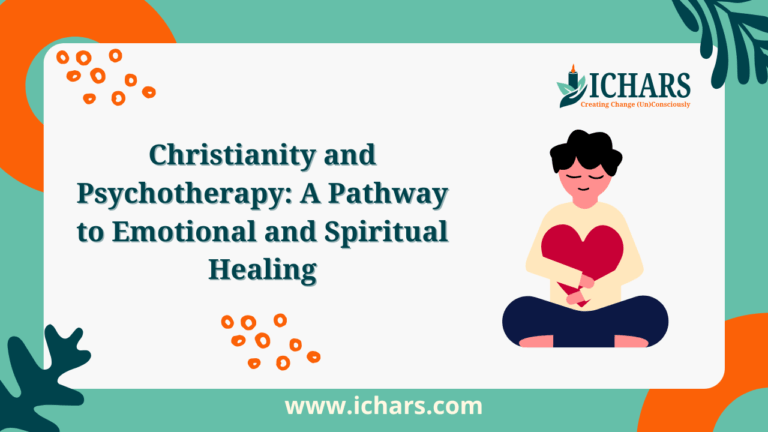Introduction: A New Paradigm for Healing
The journey of emotional healing is deeply personal and multifaceted. Modern psychotherapy has long recognized the importance of addressing the mind and emotions in the context of personal history, thoughts, and behaviors.
However, in today’s world, many individuals face challenges that transcend purely psychological realms—they are seeking healing for a fragmented soul, wrestling with spiritual crises, or yearning for a deeper connection to their faith.
Christianity offers not just a worldview but a deep spiritual framework that has guided billions toward emotional, moral, and existential healing. At its heart, Christianity is about the restoration of individuals: physically, emotionally, and spiritually.
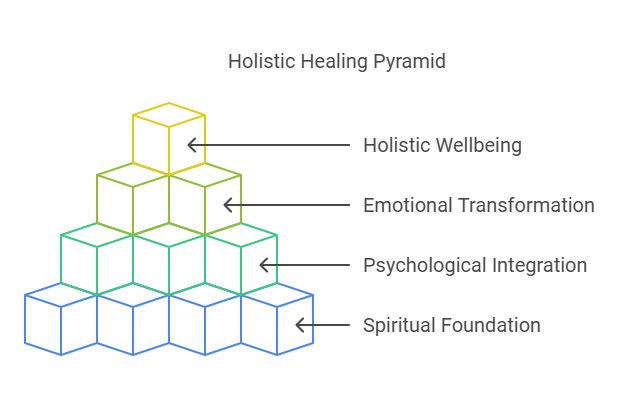
Whether it is the promise of grace, the call to forgiveness, or the transformative power of love, Christianity has provided comfort, healing, and purpose for people struggling with their emotional burdens for millennia.
Cognitive Hypnotic Psychotherapy (CHP) offers a dynamic, integrative approach to therapy by combining cognitive techniques, hypnosis, mindfulness, and elements of NLP to address mental, emotional, and behavioral challenges.
When these principles are combined with Christian teachings, CHP becomes an extraordinarily effective tool for deep, holistic healing, addressing not only the mind but also the spirit, and guiding individuals toward a profound and lasting transformation.
This article explores how the fusion of Christianity and CHP offers a pathway for emotional wellbeing, integrating the spiritual and psychological realms into a cohesive, comprehensive model for personal growth and healing.
Christianity: A Spiritual and Emotional Framework for Healing
Christianity offers more than just a religious perspective—it provides a holistic framework for emotional wellbeing that considers the depth of human experience.
From the message of Jesus Christ to the teachings of the apostles, the Bible and Christian tradition present a vision of life that is rich with emotional, relational, and spiritual insights. Christianity teaches that emotional healing is rooted in reconciliation—both with God and with one’s self and others.
Key Christian teachings, such as unconditional love, forgiveness, grace, hope, and redemption, are inherently transformative for emotional health.
These principles not only guide the moral life but also provide deep emotional healing by restoring a sense of dignity, peace, and purpose.
The Role of Love and Compassion in Emotional Healing
At the heart of Christian teaching is the call to love—first, to love God and then to love others as ourselves (Matthew 22:37-39). In the context of emotional wellbeing, love is a powerful force that allows individuals to transcend their wounds.
Jesus’ teachings on love emphasize unconditional care, acceptance, and compassion, which are essential in emotional healing. When clients embrace the concept of agape love—the selfless, unconditional love that God extends toward humanity—they begin to reframe their relationship with themselves and others.
This shift allows for the healing of deep emotional wounds, especially those tied to rejection, abandonment, or feelings of unworthiness.
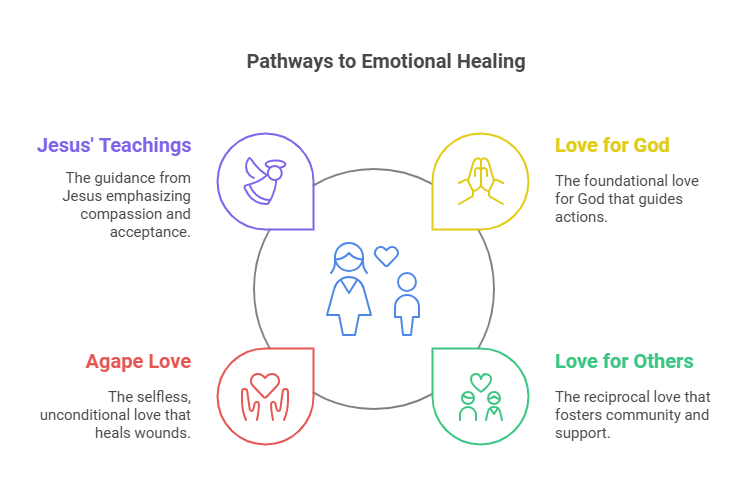
The Power of Forgiveness in Releasing Emotional Burdens
Forgiveness is another cornerstone of Christianity. It is not just a duty to others but a crucial act of self-liberation. Jesus teaches that we must forgive not just once, but “seventy times seven” (Matthew 18:22), signaling that forgiveness is boundless and a key to emotional freedom.
Forgiveness in the Christian context releases individuals from the prison of anger, resentment, and bitterness, enabling them to heal and move forward.
When incorporated into therapy, forgiveness exercises that align with biblical teachings provide a powerful tool for letting go of emotional burdens, cultivating peace, and restoring inner joy. These practices don’t just help clients forgive others but also encourage self-forgiveness—a vital aspect of emotional wellbeing.
Grace: The Unmerited Gift of Healing
Grace—the unearned love and favor of God—is a concept that offers profound emotional and psychological healing. Christianity teaches that God’s grace extends to all, regardless of past mistakes or failings.
This unconditional acceptance is not only liberating but transformative. It provides individuals with the capacity to embrace their imperfections and the assurance that they are worthy of love and healing.
In the therapeutic setting, the concept of grace allows clients to heal from the wounds of guilt, shame, and self-condemnation. By embodying the idea that they are accepted and loved by God, clients can transcend feelings of inadequacy, embrace vulnerability, and open themselves to the possibility of change.
Cognitive Hypnotic Psychotherapy (CHP): A Comprehensive Pathway to Healing
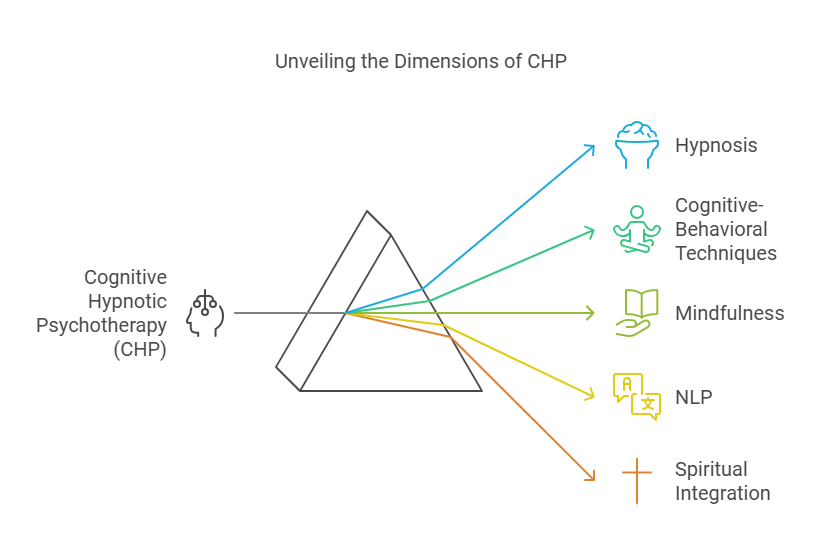
Cognitive Hypnotic Psychotherapy (CHP) is an advanced and integrative therapeutic model that uses hypnosis, cognitive-behavioral techniques, mindfulness, and NLP to facilitate emotional healing.
CHP works by uncovering and reprogramming the subconscious thought patterns, beliefs, and emotional imprints that hold individuals back. By addressing both the conscious and subconscious minds, CHP helps clients confront deep emotional challenges that may have been ingrained over years or even lifetimes.
The real power of CHP lies in its ability to bring about transformative change by tapping into the subconscious—the part of the mind that governs automatic behaviors, emotions, and thought patterns.
By utilizing hypnosis and other tools, CHP allows individuals to access repressed memories, reframe negative beliefs, and create new emotional pathways for healthier living.
However, CHP’s integration of spirituality into its methods elevates its therapeutic effectiveness. By working through the lens of Christian principles, CHP becomes more than just a psychological approach—it transforms into a spiritual healing process that resonates deeply with individuals seeking to align their emotional wellbeing with their faith.
Integrating Christianity into CHP: A Holistic Healing Approach
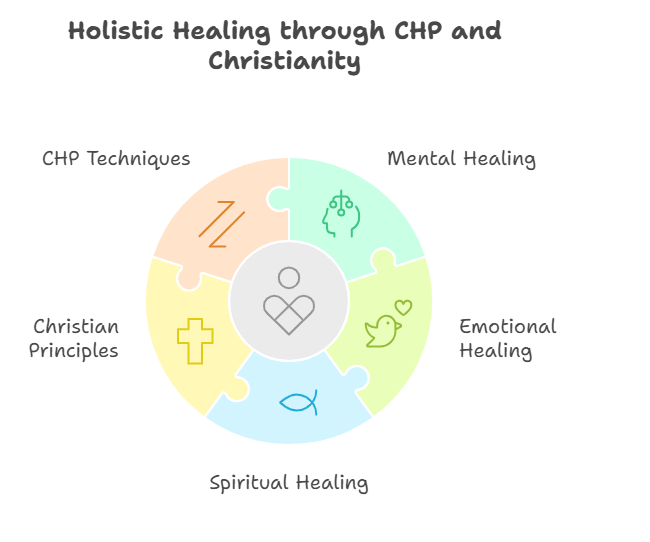
The integration of Christian principles into CHP offers a unique opportunity for emotional and spiritual healing. By combining scientifically validated therapeutic methods with the deep, transformative teachings of Christianity, this integrated approach offers healing on multiple levels: mental, emotional, and spiritual.
Here’s how Christian principles can complement and enhance CHP’s therapeutic techniques:
Visualization with Christian Imagery: Connecting the Spiritual and Subconscious
Visualization is a powerful technique in CHP. Clients are guided to imagine healing scenarios, confront emotional barriers, and create positive future images. When Christian imagery is integrated, this visualization becomes even more profound.
Clients might visualize themselves surrounded by divine light or walking with Jesus, experiencing peace, comfort, and emotional release. These powerful, faith-based images deepen the connection between the mind and spirit, allowing clients to feel God’s presence during their healing journey.
Scripture-based Cognitive Reframing: Renewing the Mind
Cognitive reframing, a central technique in CHP, involves changing the way individuals perceive themselves, others, and their circumstances. By integrating scripture into this process, clients can replace negative, limiting beliefs with biblically grounded truths.
For example, individuals struggling with feelings of inadequacy might meditate on Psalm 139:14—“I am fearfully and wonderfully made”—transforming their inner dialogue and fostering self-compassion and acceptance.
Forgiveness through Prayer and Hypnosis: Emotional Release and Reconciliation
Forgiveness is a deeply spiritual practice in Christianity, and when paired with hypnosis, it becomes an even more potent tool for emotional release. Clients can engage in guided hypnosis sessions where they mentally forgive those who have hurt them, letting go of deep-seated resentments and emotional pain.
Through prayer and visualization, clients can also practice forgiving themselves for past mistakes, embracing the healing power of God’s grace and forgiveness.
Grace-centered Affirmations: Rebuilding Self-Worth
Affirmations are a cornerstone of CHP. By replacing negative thought patterns with positive, empowering beliefs, clients can begin to shift their emotional state and worldview.
Christian-based affirmations—such as “I am loved and accepted by God,” “I am redeemed,” or “God’s grace is sufficient for me”—can deeply impact an individual’s sense of self-worth and provide a lasting foundation for emotional healing.
Mindfulness with Prayer: Grounding in God’s Presence
Mindfulness practices in CHP can be enhanced by incorporating prayer. During mindfulness exercises, clients focus on God’s presence, acknowledging His love and peace. This practice can reduce anxiety, promote emotional regulation, and foster a deeper connection to the divine.
By turning mindfulness into a spiritual practice, clients experience a sense of belonging, safety, and divine support that enhances their emotional wellbeing.
The Transformative Power of CHP and Christianity: A Case Study
Sarah’s Journey of Redemption and Healing
Background:
Sarah, a 40-year-old woman, struggled with guilt and self-worth following a traumatic divorce. Despite her deep Christian faith, she felt emotionally distant from God and could not forgive herself for what she perceived as failures. She came to therapy seeking relief from constant anxiety, guilt, and depression.
Therapeutic Approach:
Through CHP, Sarah underwent a series of exercises integrating Christian principles of forgiveness, grace, and redemption. Guided visualization with Christian imagery helped her experience the warmth and acceptance of God’s love.
Cognitive reframing involved replacing her negative self-talk with scripture-based affirmations like “I am wonderfully made.”
Hypnosis sessions allowed Sarah to forgive herself and others, releasing the burden of resentment and self-condemnation. As Sarah embraced the grace of God, she began to heal both emotionally and spiritually.
Outcomes:
Sarah’s anxiety decreased significantly, and she reported a renewed sense of peace and connection with God. Through the integration of Christian teachings with CHP, Sarah not only overcame emotional struggles but also experienced spiritual renewal.
She embraced the redemption offered by Christ and began living with greater emotional freedom and purpose.
Conclusion: A Holistic Path to Healing and Transformation
The integration of Christianity with Cognitive Hypnotic Psychotherapy offers a powerful, transformative approach to emotional wellbeing.
By combining scientifically-backed therapeutic techniques with the timeless wisdom of Christianity, individuals can experience healing on every level: mental, emotional, and spiritual.
For those struggling with emotional wounds, psychological blocks, or spiritual disconnection, this integrated approach offers a pathway to healing that is holistic, profound, and deeply impactful.
By embracing Christian values such as love, forgiveness, grace, and redemption, individuals can find lasting peace, emotional resilience, and a deeper connection to their faith, leading to a life of healing, transformation, and fulfillment.
This approach fosters a deeper understanding of how mind, body, and spirit work together for holistic healing, allowing individuals to tap into divine support and transformative love while reprogramming harmful emotional patterns.
By integrating Christianity and CHP, therapists can guide clients to experience true freedom, peace, and spiritual alignment, creating lasting transformation that reaches far beyond the therapy room.
